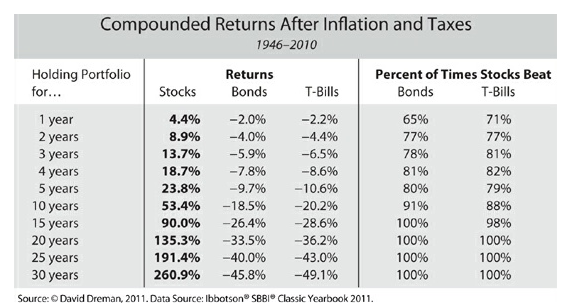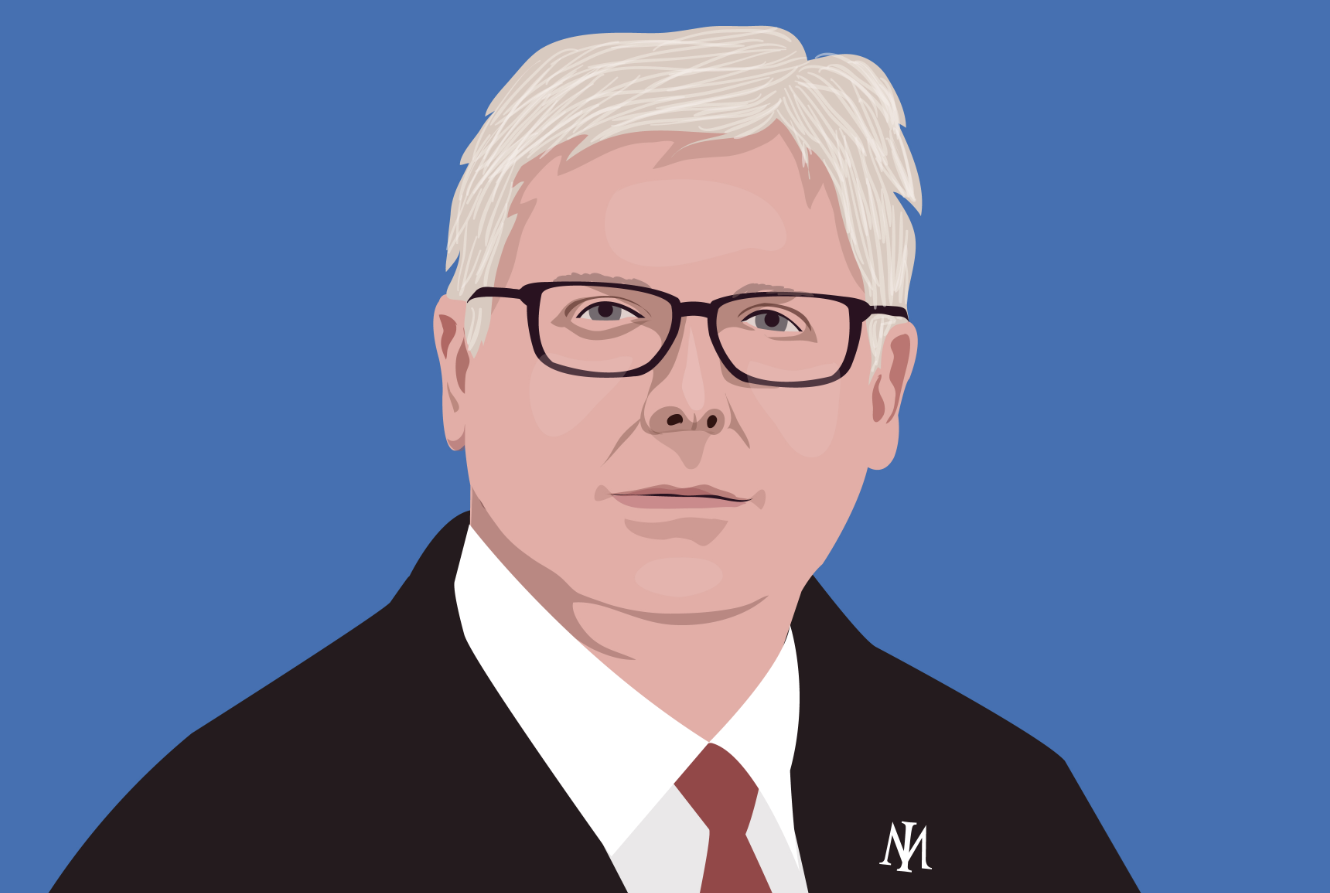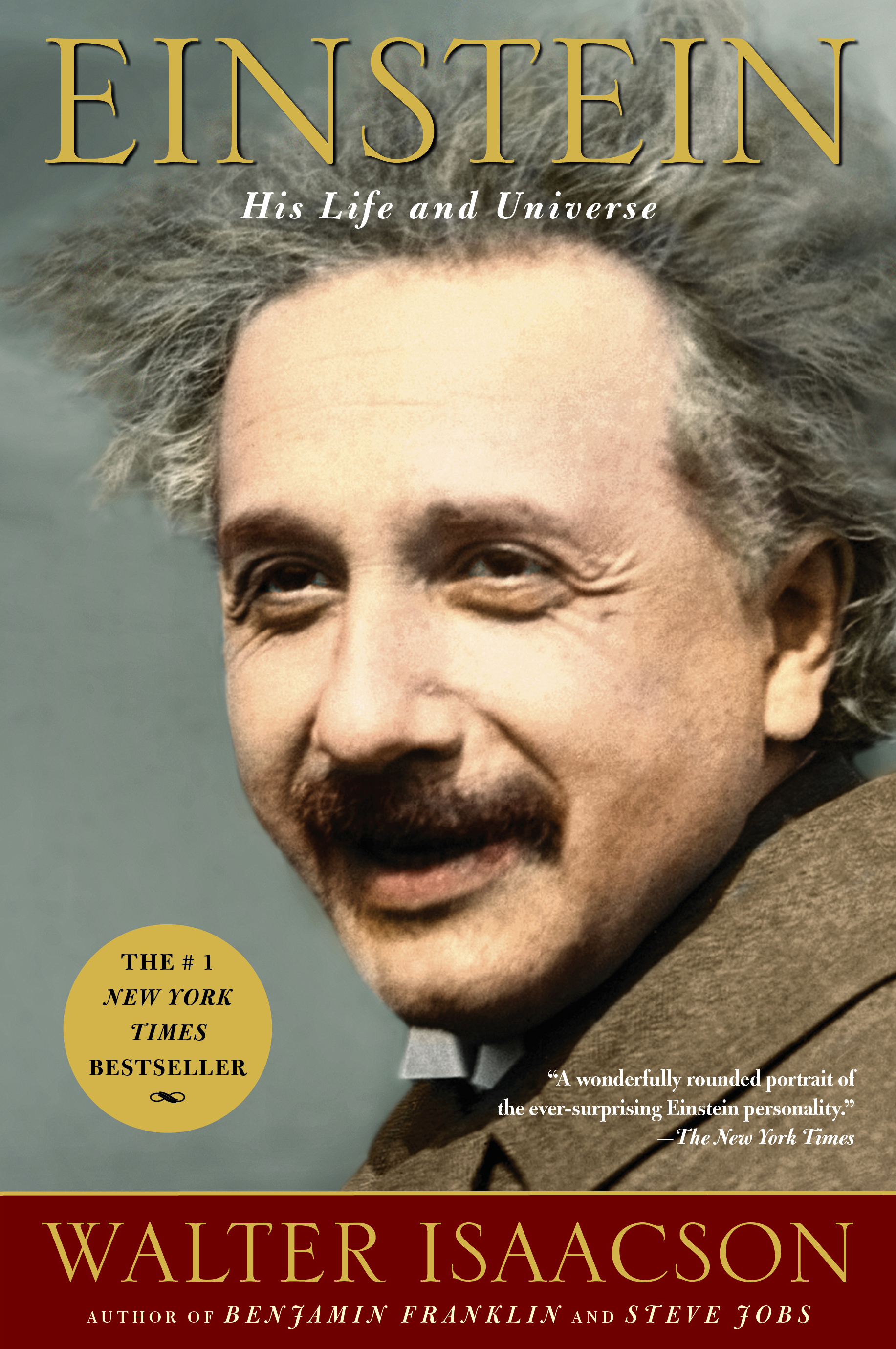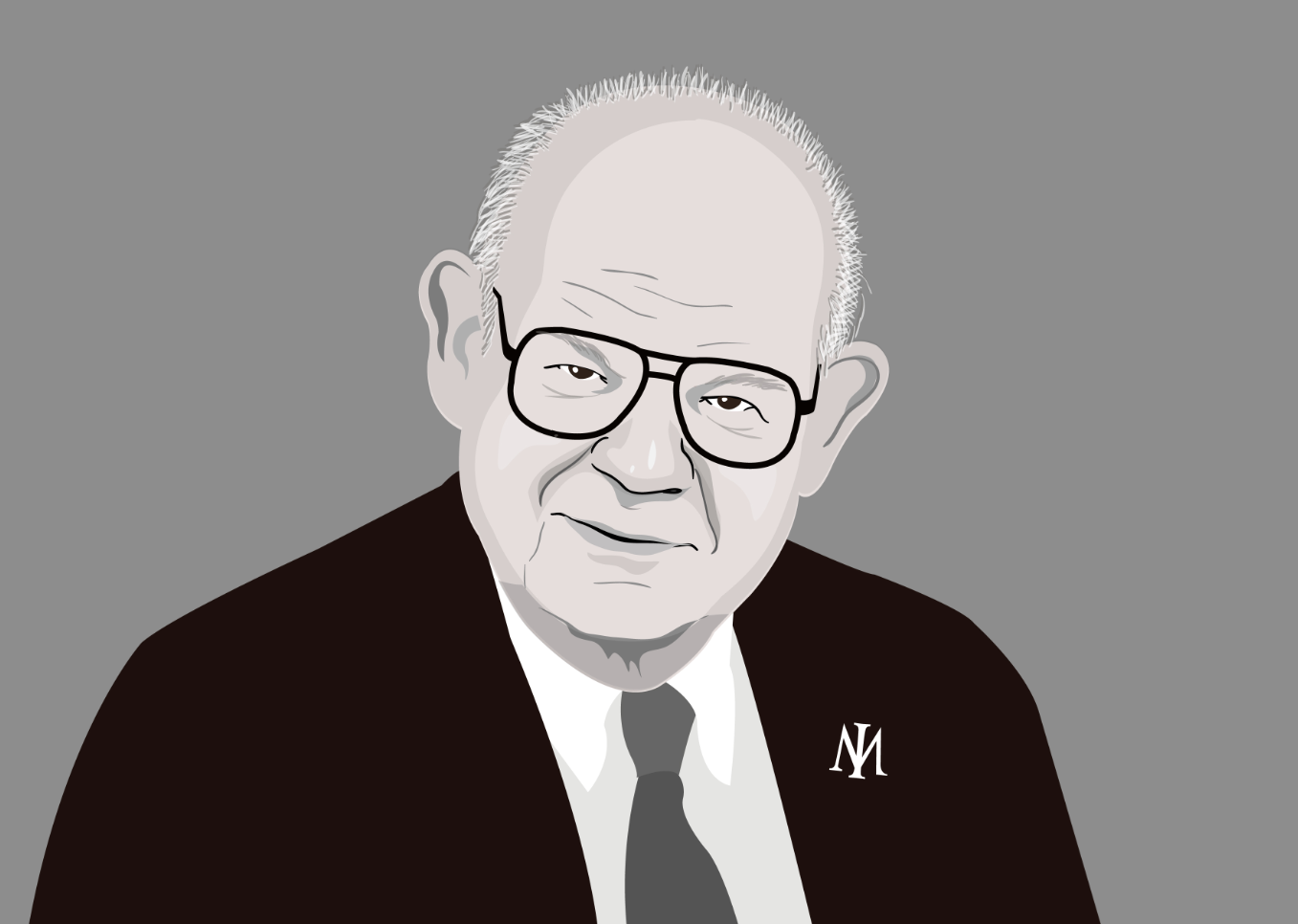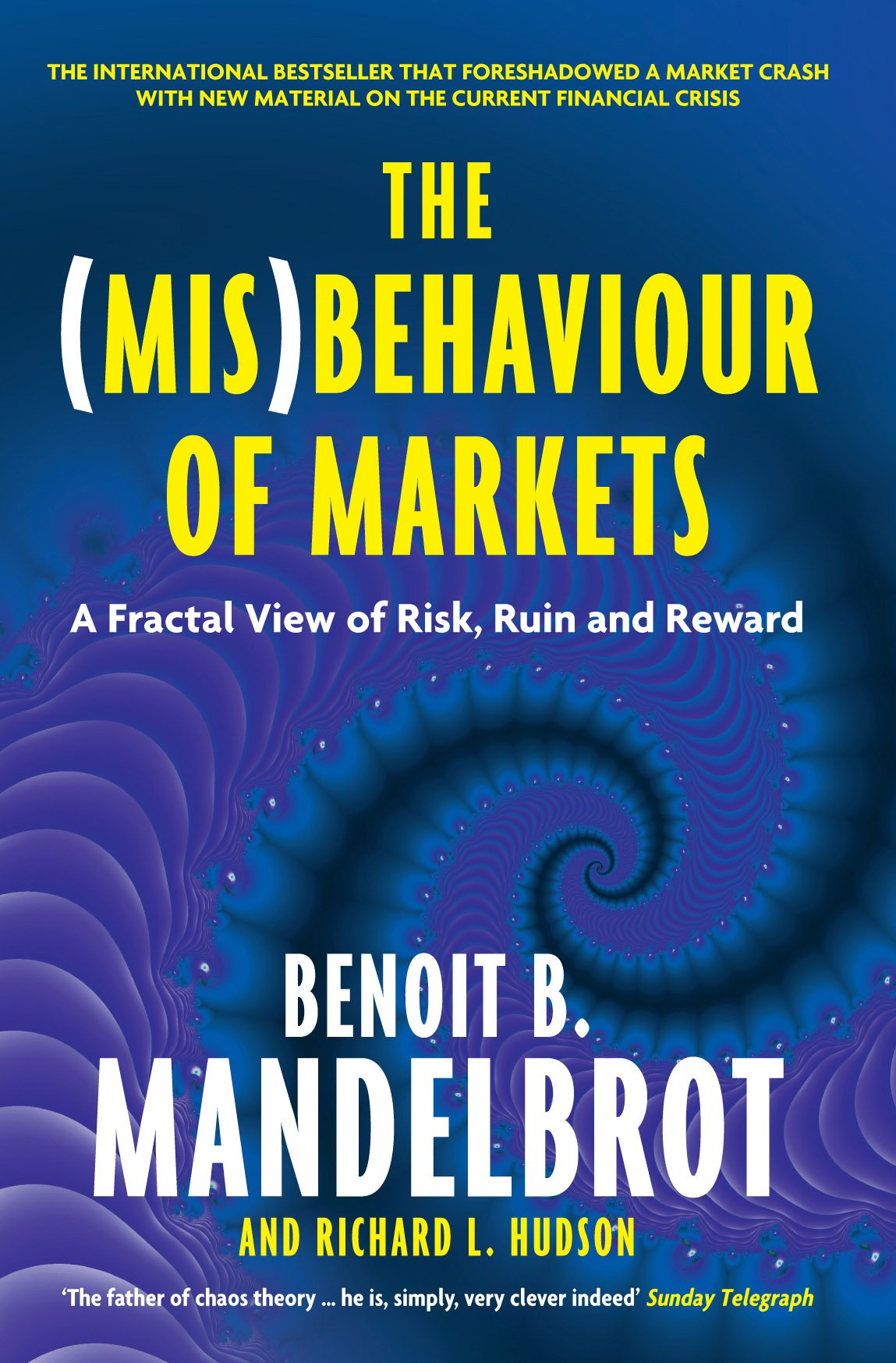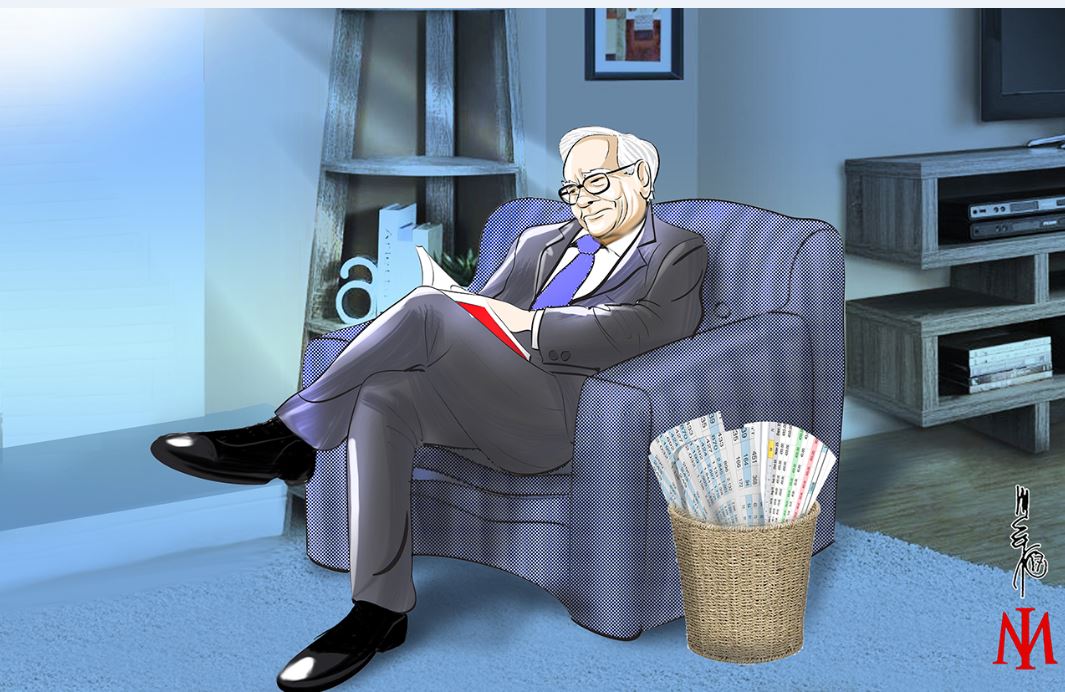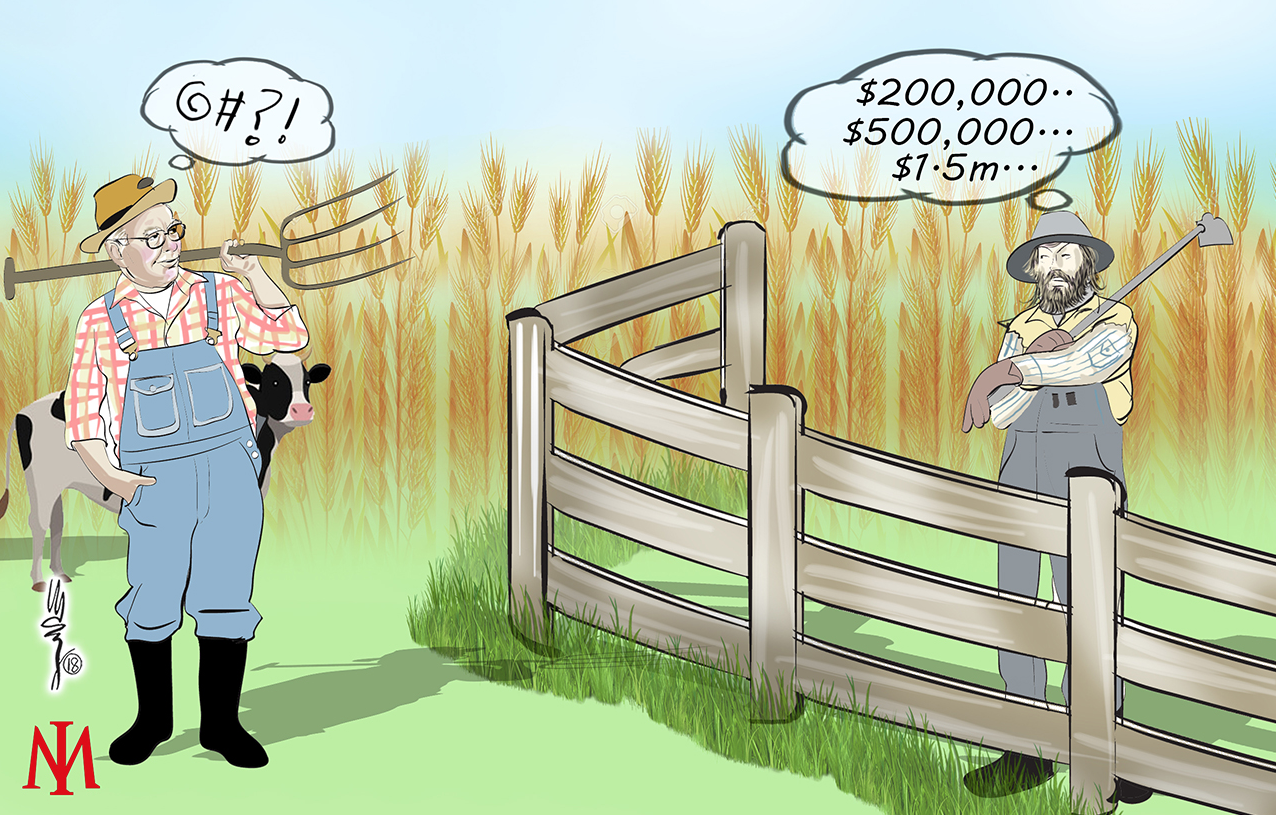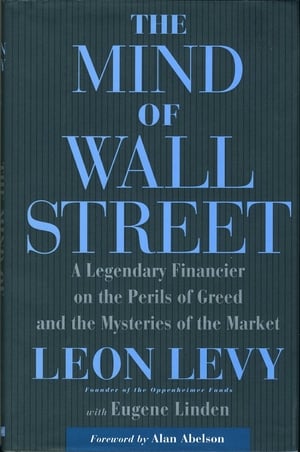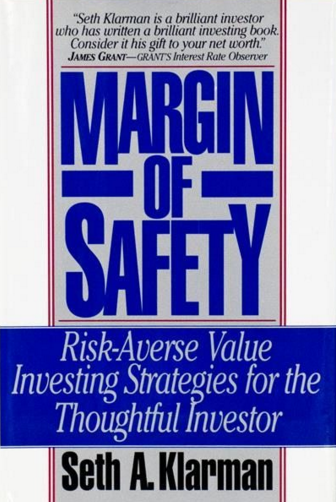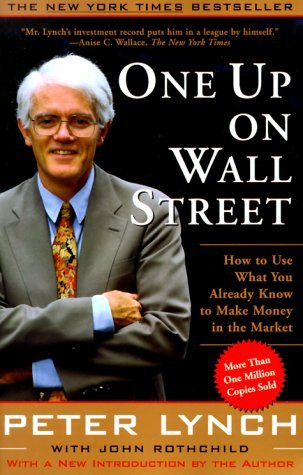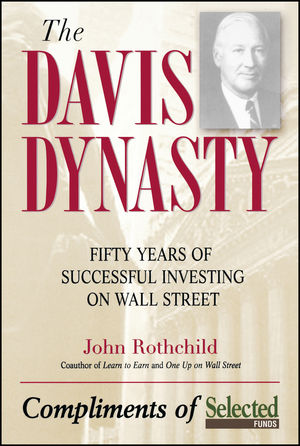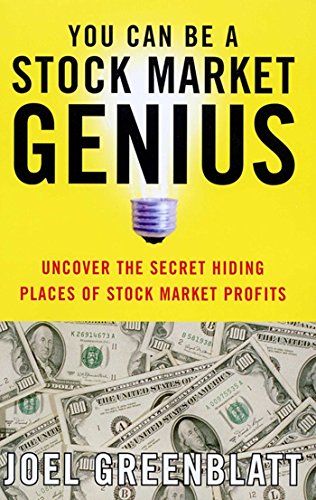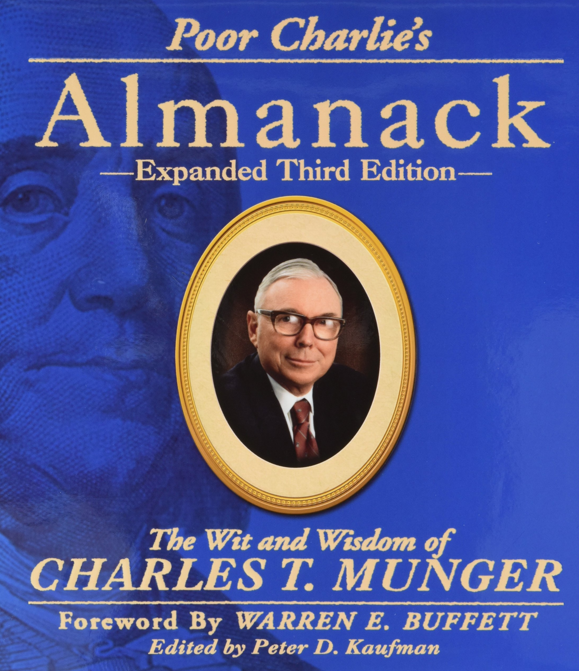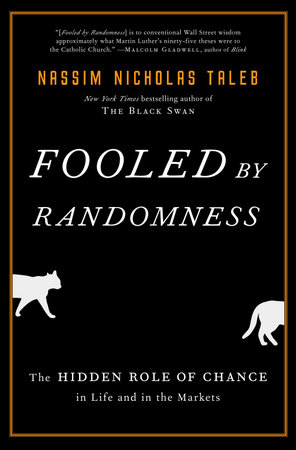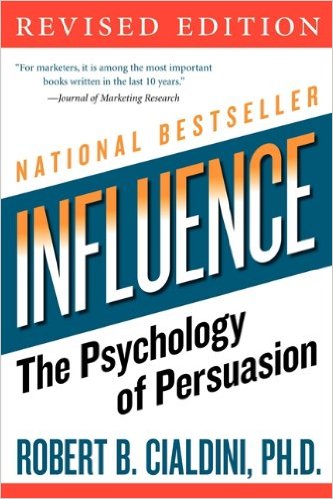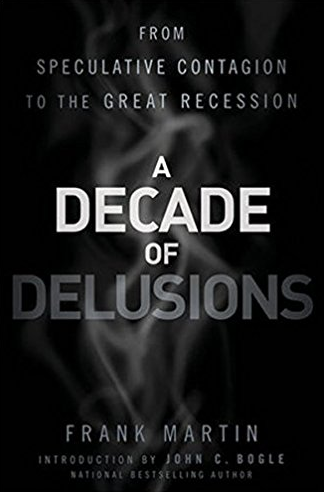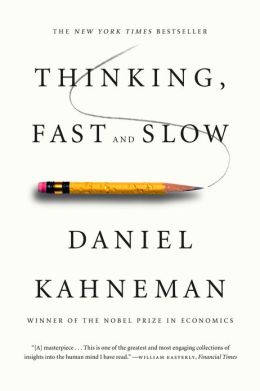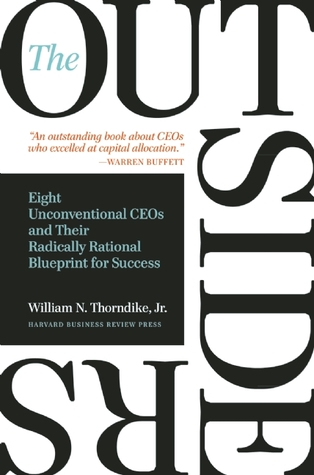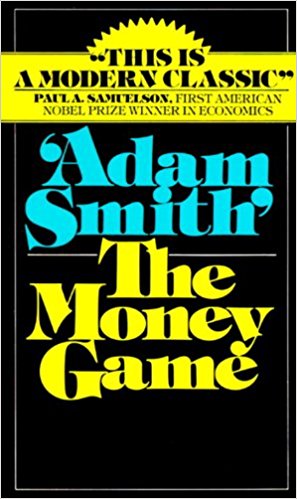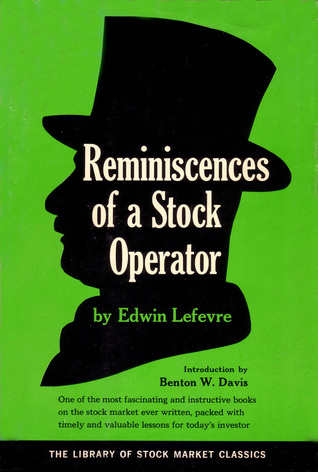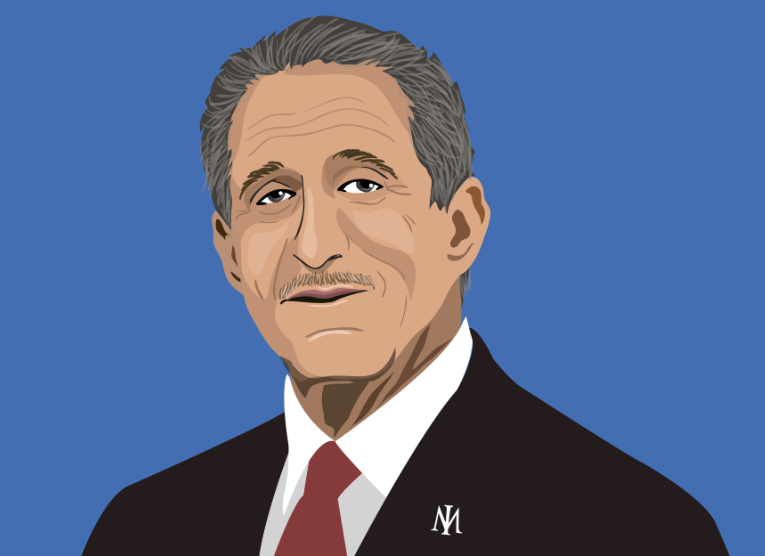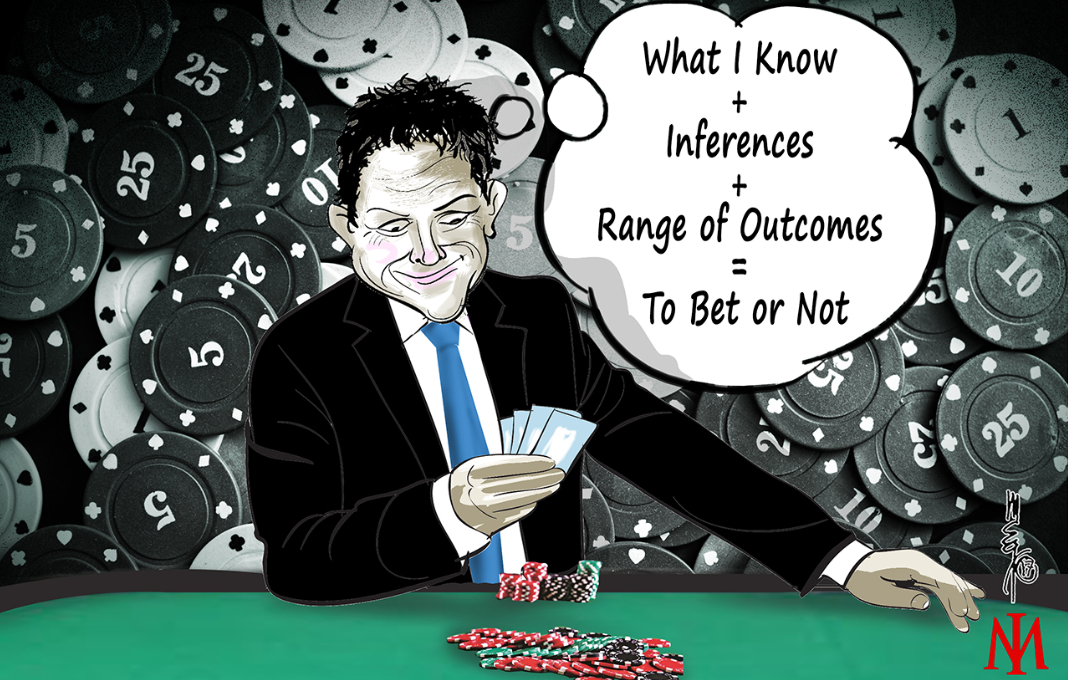“Defining what your game is, where you are going to have an edge is enormously important.” Warren Buffett
Every successful investor has an edge. And when I say 'edge', I'm referring to the difference we have that gives us an advantage in a situation. In investing, this could be a structural edge such as access to better information or low-cost permanent capital, or it may be an intellectual edge derived from creativity or lateral thinking or a psychological edge like emotional rigor or temperament. It could also mean having a longer time horizon than other investors, or even a better reputation. Outperformance as we know it is usually derived from a combination of more than one edge.
"First answer the question, 'What's your edge?" Seth Klarman
"You have to figure out where you have an edge." Charlie Munger
I've long thought about the edges Warren Buffett has. These are his differences that he has utilized to allow him to deliver returns far in excess of the market indices; you don't compound capital at nearly 20%pa for over 50 years without some sort of serious edge.
I've outlined the multitude of Buffett's edges below. There are probably others however these tend to define the key differences for me...
Reads & Thinks
“I insist on a lot of time being spent, almost every day, to just sit and think. That is very uncommon in American business. I read and think. So I do more reading and thinking, and make less impulse decisions than most people in business." Warren Buffett
Discipline
"An investor cannot obtain superior profits from stocks by simply committing to a specific investment category or style. He can earn them only by carefully evaluating facts and continuously exercising discipline." Warren Buffett
Unemotional
“If you’re emotional about investment you’re not going to do well.” Warren Buffett
Loves Investing
“I get to do what I love to do every day.” Warren Buffett
No Distractions
"The best CEO's love operating their companies and don't prefer going to Business Round Table meetings or playing golf at Augusta National." Warren Buffett
"The wooden shutters on the [office] windows are always closed. You get no sense that a world exists outside, which is what he wants, no distractions. As far as I can tell, he doesn’t need sunlight." Alice Schroeder
No Ulterior Motives
“There’s nothing material I want very much.” Warren Buffett
Humility
“You gotta hit a few in the woods.” Warren Buffett
"You have to put mistakes behind you and not look back. Tomorrow is another day. Just go on to the next thing and strive to do your best." Warren Buffett
Learns from Mistakes
“One of the reason Warren’s so successful is that he is brutal in appraising his own past. He wants to identify mis-thinkings and avoid them in the future.” Charlie Munger
"It's good to learn from your mistakes. It's better to learn from other people's mistakes." Warren Buffett
A Learning Machine
“If you take Berkshire Hathaway, which is one of the best regarded corporations in the world and it may have the best long term investment record in the entire history of civilisation. The skill that got Berkshire through one decade, would not have sufficed to get it through the next decade with the achievements made. Without Warren Buffett being a continuous learning machine, the record would have been absolutely impossible.” Charlie Munger
Independent Thinker
“You will not be right simply because a large number of people momentarily agree with you. You will not be right simply because important people agree with you. You will be right over the course of many transactions, if your hypothesis are correct, your facts are correct, and your reasoning is correct.” Warren Buffett
Contrarian in Nature
“We have usually made our best purchases when apprehension about some macro event were at a peak. Fear is the foe of the faddist, but the friend of the fundamentalist.” Warren Buffett
"Berkshire buys when the lemmings are heading the other way." Warren Buffett
Age
"It's hard to believe that he's getting better with each passing year. It won't go on forever, but Warren is actually improving. It's remarkable: Most seventy-two-year-old men are not improving, but Warren is." Charlie Munger
Communication Skills
"We also believe candor benefits us as managers: The CEO who misleads others in public may eventually mislead himself in private." Warren Buffett
"By our policies and communications, we can encourage informed, rational behavior by owners that, in turn, will tend to produce a stock price that is also rational. Our it's-as-bad-to-be- overvalued-as-to-be-undervalued approach may disappoint some shareholders. We believe, however, that it affords Berkshire the best prospect of attracting long-term investors who seek to profit from the progress of the company rather than from the investment mistakes of their partners." Warren Buffett
[Buffett's skill in writing has helped him develop a rapport with Berkshire's shareholders. He's under no pressure to buy or sell assets or keep up with an index. He doesn't have to worry investors will pull their money. Unlike most managers, it has allowed him to maintain a long term focus].
Away from Wall Street
“If I was on Wall Street I’d probably be a lot poorer. You get overstimulated on Wall Street. You hear lots of things. You may shorten your focus and a short focus is not conducive to long profits. Here I can just focus on what businesses are worth. I don’t need to be in Washington to figure out what the Washington Post is worth, or be in New York to figure out what some other company is worth. Here I can just focus on what businesses are worth.” Warren Buffett
Value Approach
"As far as I can observe and speak to with statistics, there has only been one style which has reliably and safely brought investors exceptional long term returns: value investing. Today, Buffett has a 57-year track record." Li Lu
Generalist / Opportunistic
“Our rule is pure opportunism. If there is a masterplan somewhere in Berkshire, they’re hiding it from me. Not only do we not have a master plan, we don’t have a master planner.” Charlie Munger
"We do have a few advantages, perhaps the greatest being that we don't have a strategic plan. Thus we feel no need to proceed in an ordained direction (a course leading almost invariably to silly purchase prices) but can instead simply decide what makes sense for our owners." Warren Buffett
[Buffett doesn't have constraints such as benchmarks, indexes, asset types, time horizon, etc. There is no pressure to keep up with an index. As a private business owner, Buffett doesn't have to invest in any business if the return profile is unattractive. Furthermore, with a fortress balance sheet, Buffett is often sought out for transactions at times when others are constrained.]
Long Term Focus
"One factor that has caused some reluctance on my part to write semi-annual letters is the fear that partners may begin to think in terms of short-term performance which can be most misleading. My own thinking is much more geared to five year performance, preferably with tests of relative results in both strong and weak markets.” Warren Buffett
“I could do certain things to jiggle up the price of Berkshire - in the short run, that would not be good for the company over five or ten years. [I] could spin off one of our divisions, it might be a pretty big, hot division, but if it's a really good business, I just as soon a keep it for Berkshire. I am running the company for people who want to stick around, not for the ones who are leaving.” Warren Buffett
[Having a long term focus allows Buffett to allocate capital to businesses which may depress short term earnings at the expense of long term gains. When investing, he can focus on what a business will be earning and likely worth many years into the future without the pressure of short term performance.]
Sticks with What he Knows / Defined Filters
“I don’t need to make money in every game. I don’t know what coca beans are going to do. There are all kinds of things I don’t know about. That maybe too bad but why should I know all about them, I haven’t worked that hard on them.” Warren Buffett
"We do have filters. And sometimes those filters are very irritating to people who check in with us about businesses - because we really can say "no" in 10 seconds or so to 90%+ of all of the things that come along simply because we have these filters." Warren Buffett
"Typically, and this is not well understood, his [Buffett's] way of thinking is that there are disqualifying features to an investment. So he rifles through and as soon as you hit one of those it’s done. Doesn’t like the CEO, forget it. Too much tail risk, forget it. Low-margin business, forget it. Many people would try to see whether a balance of other factors made up for these things. He doesn’t analyze from A to Z; it’s a time-waster." Alice Schroeder
Thinks as a Businessman
“When we buy a stock, we always think in terms of buying the whole enterprise because it enables us to think as businessmen rather than stock speculators.” Warren Buffett
“I did a lot of work in the earlier years just getting familiar with businesses and the way I would do that is use what Phil Fisher would call, the ―Scuttlebutt Approach - I would go out and talk to customers, suppliers, and maybe ex-employees in some cases. Everybody." Warren Buffett
“Warren Buffett can always put himself in the shoes of the management team and analyze the situation from management teams point of view instead of his own point of view. I think it is not easy to always try to understand what others think because we are so used to only look at the world from our own perspectives.” Lei Zhang
Buys Simple Businesses He Understands
“We try to stick to businesses we believe we understand. That means they must be relatively simple and stable in character.” Warren Buffett
Insists on Good Management
"In making both control purchases and stock purchases, we try to buy not only good businesses, but ones run by high-grade, talented and likable managers." Warren Buffett
Conservative assumptions
“.. take all of the variables and calculate ‘em reasonably conservatively .. don’t focus too much on extreme conservatism on each variable in terms of the discount rate and the growth rate and so on; but try to be as realistic as you can on these numbers, with any errors being on the conservative side. And then when you get all through, you apply the margin of safety.” Warren Buffett
Access to Information
"We have dozens and dozens and dozens of businesses. I've always said I'm a better investor because I've had experience in business and better businessman because I've had experience in investments. Berkshire is about as good a place as you can find to really understand competitive dynamics and all that." Warren Buffett
"There is almost no industry Berkshire doesn't touch in one form or another. I can't count the number of times when I'm looking at something and pick up the phone and talk to [one of our CEOs] and if it's in any one of their adjacent industries, they know more about it in 15 minutes than an investor can learn in a lifetime." Todd Combs
Looks at Price Last
“I always like to look at investments without knowing the price – because if you see the price, it automatically has some influence on you.” Warren Buffett
Doesn't Disclose Positions
“We cannot talk about our current investment operations. Such an “open mouth” policy could never improve our results and in some situations could seriously hurt us. For this reason, should anyone, including partners, ask us whether we are interested in any security, we must plead the “5th Amendment.” Warren Buffett
Buys Established, Predictable, Quality Businesses
"Experience indicates that the best business returns are usually achieved by companies that are doing something quite similar today to what they were doing five or ten years ago." Warren Buffett
“At Berkshire we will stick with businesses whose profit picture for decades to come seems reasonably predictable.” Warren Buffett
"It must be noted that your Chairman, always a quick study, required only 20 years to recognize how important it was to buy good businesses. In the interim, I searched for "bargains" - and had the misfortune to find some. My punishment was an education in the economics of short-line farm implement manufacturers, third-place department stores, and New England textile manufacturers." Warren Buffett
Controls Capital Allocation
Buffett gets to decide where and when the companies he controls direct their capital. Businesses with solid re-investment opportunities receive capital, while other businesses, while they maybe highly profitable don’t have those allocation opportunities.
“When we control a company we get to allocate capital, whereas we are likely to have little or nothing to say about this process with marketable holdings.” Warren Buffett
“Buffett solves the reinvestment conundrum unlike almost any other business we know of. Sure, Buffett can allow CEOs to reinvest in carpets or bricks – but only if the CEO can convince Buffett that these reinvestment opportunities are superior to Buffett’s exceptionally wide canvas of reinvestment opportunities.” David Rolfe
No Committees / Groupthink
"As your company gets larger and larger and you have larger groups making decisions, the decisions get more homogenised. I don't think you will ever get brilliant investment decisions out of a large committee." Warren Buffett
"We try very hard, Charlie and I, not to get eager to do a deal [ie acquisition]. We’re just eager to do a deal that makes sense. And that would be a lot harder if we had directors, strategy departments, whatever it might be, all pushing us toward, you know. So the setting in which you operate really can be very important." Warren Buffett
Aligned Shareholders
“Boredom is a problem with most professional money managers. If they sit out an inning or two, not only do they get somewhat antsy, but their clients start yelling ‘swing you bum’ from the stands.” Warren Buffett
"We do not view Berkshire shareholders as faceless members of an ever-shifting crowd, but rather as co-venturers who have entrusted their funds to us for what may well turn out to be the remainder of their lives." Warren Buffett
"We have an ownership structure that is probably more stable than any company our size, or anywhere near our size, in the country. And that’s attractive to people." Warren Buffett
Avoids Leverage
"Borrowed money has no place in the investor’s tool kit: Anything can happen anytime in markets." Warren Buffett
Maintains Significant Cash
"There will be some incident, it could be tomorrow. At that time, you need cash. Cash at that time is like oxygen. When you don't need it, you don't notice it. When you do need it, it's the only thing you need. We operate from a level of liquidity that no one else does." Warren Buffett
"The ability to say 'yes' very quickly [in turbulent times] with very large sums sets you apart from virtually anybody in the investing universe." Warren Buffett
No Guidance to Hit / Analysts to Please
"We do not follow the usual practice of giving earnings 'guidance.'" Warren Buffett
"We’ve not had to bow to any of the urgings of Wall Street or, you know, whatever may be the fad of the day." Warren Buffett
Zero Cost Permanent Capital
"Berkshire has access to two low-cost, non-perilous sources of leverage that allow us to safely own far more assets than our equity capital alone would permit: deferred taxes and "float," the funds of others that our insurance business holds because it receives premiums before needing to pay out losses." Warren Buffett
"Well obviously there was a little leverage buried in the Berkshire numbers. Obviously the insurance business provided some of that. It’s not over-whelming in its consequences." Charlie Munger
Better yet, this funding to date has been cost-free. Deferred tax liabilities bear no interest. And as long as we can break even in our insurance underwriting - which we have done, on the average, during our 32 years in the business - the cost of the float developed from that operation is zero. Neither item, of course, is equity; these are real liabilities. But they are liabilities without covenants or due dates attached to them. In effect, they give us the benefit of debt - an ability to have more assets working for us - but saddle us with none of its drawbacks." Warren Buffett
"[If your float costs you zero it's like] free money, it’s worth a lot of money. And that growth [in float] has not, probably, generally, been appreciated fully in connection with Berkshire nor has the interplay of how having zero-cost money, in terms of affecting our gain in value over time. People have looked at — always looked at our asset side, but they haven’t paid as much attention to the liability side." Warren Buffett
Berkshire's insurance operations have their own significant edges versus competitors, including the absence of pressure to grow premiums if/when pricing is unattractive, the ability to write premiums no other insurer has the balance sheet to write [a size advantage], speed of response time, lack of bureaucracy, lowest costs (Geico), ability to accept fluctuating earnings etc ....
"I would say that the main difference between our practice and that of most other people is that we are deliberately seeking a method of operation which will give us occasional big losses in a single year, big overall losses. And everybody else is trying to avoid that. And we just want to be rich enough so a big loss in a single year is a blip. And that’s a competitive advantage, that willingness to endure fluctuating annual results." Charlie Munger
“The reaction of other people when premiums are wrong is to take more risk. And our reaction when premiums are wrong is just to go play golf or something and tell somebody to call us when premiums get right again.” Warren Buffett
"We have promised people, at all of our insurance operations, that we will never have layoffs because of a drop in volume. We do not want the people who run our insurance business to feel they have to write X dollars in order to keep everybody there." Warren Buffett
No Mark to Market on Wholly Owned Businesses
"Our equity holdings have fallen considerably as a percentage of our net worth, from an average of 114% in the 1980's, for example, to less than 50% in recent years. Therefore, yearly movements in the stock market now affect a much smaller percentage of our net worth than was once the case, a fact that will normally cause us to underperform in years when stocks rise substantially and over perform in years when they fall." Warren Buffett 2004
[While Berkshire owns marketable securities that fluctuate with markets, wholly owned subsidiaries are not marked to market. On a short term basis this limits exposure to large stock market declines. Over the long term, it's the business performance that drives returns. Buffett focuses on the earnings of the businesses he owns not the share prices]
Avoids Potential Blow-Ups / Focuses on Downside
“If we can’t tolerate a possible consequence, remote though it may be, we steer clear of plantings its seeds.” Warren Buffett
Avoids Turnarounds, Start-Ups and IPO's
"Start-ups are not our game." Warren Buffett
"I've never swung at a ball while it's still in the pitcher's glove." Warren Buffett
“After 25 years of buying and supervising a great variety of businesses, Charlie and I have not learned how to solve difficult business problems. What we have learned is to avoid them.” Warren Buffett
“It’s almost a mathematical impossibility to imagine that, out of the thousands of things for sale on a given day, the most attractively priced is the one being sold by a knowledgeable seller (company insiders) to a less-knowledgeable buyer (investors).” Warren Buffett
Ethical
“Both of us [Warren] know that we’ve done better by having ethics.” Charlie Munger
Seeks Win-Win Outcomes
“He [Buffett] wanted win/win results everywhere - in gaining loyalty by giving it, for instance." Charlie Munger
Good Home for Businesses
"We have some significant advantages in buying businesses over time. We would be the preferred purchaser, I think, for a reasonable number of private companies and public companies as well." Warren Buffett
"I won’t close down businesses of sub-normal profitability merely to add a fraction of a point to our corporate rate of return. However, I also feel it inappropriate for even an exceptionally profitable company to fund an operation once it appears to have unending losses in prospect. Adam Smith would disagree with my first proposition, and Karl Marx would disagree with my second; the middle ground is the only position that leaves me comfortable." Warren Buffett
"We are also very reluctant to sell sub-par businesses as long as we expect them to generate at least some cash and as long as we feel good about their managers and labor relations. We hope not to repeat the capital-allocation mistakes that led us into such sub- par businesses." Warren Buffett
“You can sell it to Berkshire, and we’ll put it in the Metropolitan Museum; it’ll have a wing all by itself; it’ll be there forever. Or you can sell it to some porn shop operator, and he’ll take the painting and he’ll make the boobs a little bigger and he’ll stick it up in the window, and some other guy will come along in a raincoat, and he’ll buy it.” Warren Buffett
"Big private acquisitions are going to come to Berkshire because they want to come to Berkshire. And that’s a significant competitive edge, and I don’t see how anybody really challenges us on that." Warren Buffett
"We can promise that we won’t sell their business, for example, if it turns out to be disappointing, as long as it doesn’t run into the prospect of continuing losses or having significant labor problems. But we keep — we are keeping — certain businesses that you would not get a passing grade at business school on if you wrote down our reasons for keeping them. We promise the managers, you know, that they are going to continue to run their businesses. And believe me, if we didn’t do it, the word would get around on that very quickly. But we’ve been doing it now for 49 years. And we’ve put ourselves in a class that is hard for other people to compete with, if that’s important to the seller of a business." Warren Buffett
"Financial profit was not the key to ISCAR's sale. We wanted to ensure that ISCAR could continue to grow, and we saw Warren Buffett as the person who would help achieve that.. In truth, the money - $4b for 80% of ISCAR - was not the most important consideration for us in this deal .. I liked the fact that Buffett does not operate in the stock market as a speculator but as an investor. He does not look for a rapid profit but instead for stability and growth potential in the companies he acquires. He has said that he buys businesses, not stocks, they are businesses he wants to own forever. For us, the deal was more than a tribute to the unique value of the company I had founded fifty-four years earlier with an old lathe in our two-room apartment in Nahariya." Stef Werthheimer
"There seem to be enough people that have built businesses lovingly over 50 or 100 years, and their parents before them and grandparents, that really do care about the eventual disposition of them in some way beyond getting the last dollar that day, that we have a supply from time to time of those businesses. And I think we’ll continue to see them." Warren Buffett
“For somebody that’s built up their company over 20 or 30 or 40 years — and maybe their father or grandfather built it up even before that — some of those people care about where their businesses go. They’re very rich, they’ve accomplished all kinds of things in life. And they don’t want to build up something which somebody else tears apart very quickly believe they handing it over to a few MBAs who want to show their stuff. So, we do have a unique — close to a unique — asset at Berkshire. And as long as we behave properly, we will maintain that asset. And really, no one else will have much luck in competing with us.” Warren Buffett
[Over time Buffett has attracted more and more quality businesses to join Berkshire. Business founders often prioritize legacy, staff morale, business continuity and management independence above financial gain. Buffett has developed an enviable track record and a reputation as an ethical, discreet, and timely buyer who will maintain a business for the long term. A seller won't be at risk from funding conditions or onerous due diligence requirements or conditions.
"We have a significant advantage, and it gets bigger as we get bigger, because, in terms of big deals, people rely more and more often on process [ie due diligence requirements] in that when people want to get a deal done, they want to know it’s going to be done, they will come to us." Warren Buffett
"We’re so peculiar that there actually are a good number of businesses in America where they prefer selling to us than to other people. That’s very helpful." Charlie Munger
Buffett doesn't participate in auctions (another edge!) and is often the only party to be offered the businesses he buys. The counter to this is that negotiated private asset sales are rarely done at knock-down prices as they occasionally are in the stock market .. Buffett notes .. "You will never make the kind of buy in a negotiated purchase that you can in a bad market— that you can make via stocks in a stock — in a weak stock market. It just isn’t going to happen." ]
Disadvantages
While the list of Buffett's edges is long and I'm sure you can think of others, he does have some headwinds. While size can be an advantage in terms of writing insurance deals no-one else can or seeing business opportunities …
“The one thing about Berkshire is that we do get some opportunities that other people don’t get. If you’re 3G and want a partner for you’re next deal, who in the hell are you going to come to? We know, they know we’re a good partner, so we see stuff other people don’t see. That helps” Charlie Munger
It is also a major disadvantage …
"The biggest disadvantage we have is size." Warren Buffett
Another is the fact he doesn't close under-performing businesses - that's the likely cost of seeing more private opportunities. He's also conservative. Carrying more debt would have generated even more returns, but it could also have led to the permanent loss of capital. And that would have broken Buffett's first rule: Don't lose money.
Summary
Many of Buffett's edges are available to all investors. He certainly doesn't hide them; he's been writing about them for the last 50 years. But there's one other edge I haven't mentioned, and it could be the most important of all - Charlie Munger. And what an edge that is. Buffet has given us much in the way of learning over those 50 years, and Charlie has as much and more to teach. And if you're looking for more, you could certainly start with him.
Further Reading: Charlie Munger 50th Anniversary Letter
Follow us on Twitter: @mastersinvest
TERMS OF USE: DISCLAIMER


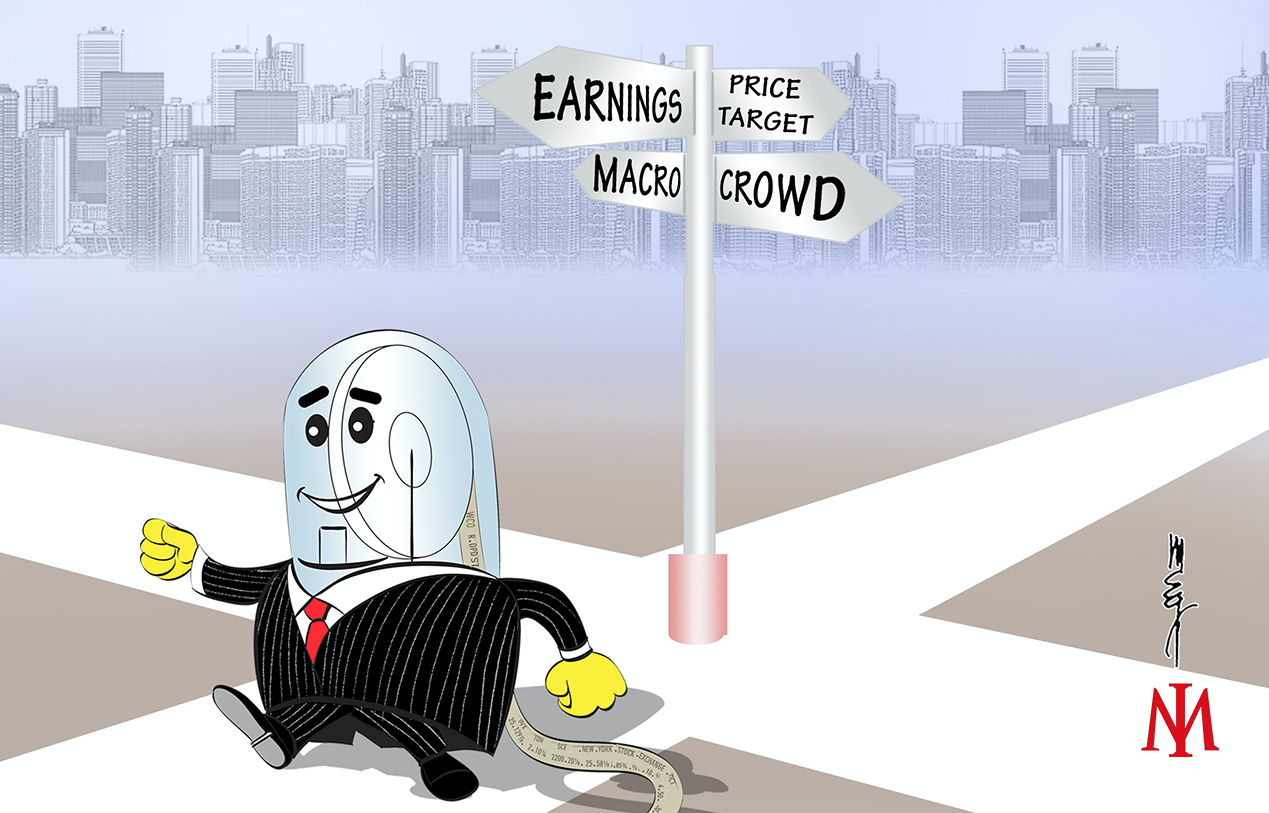



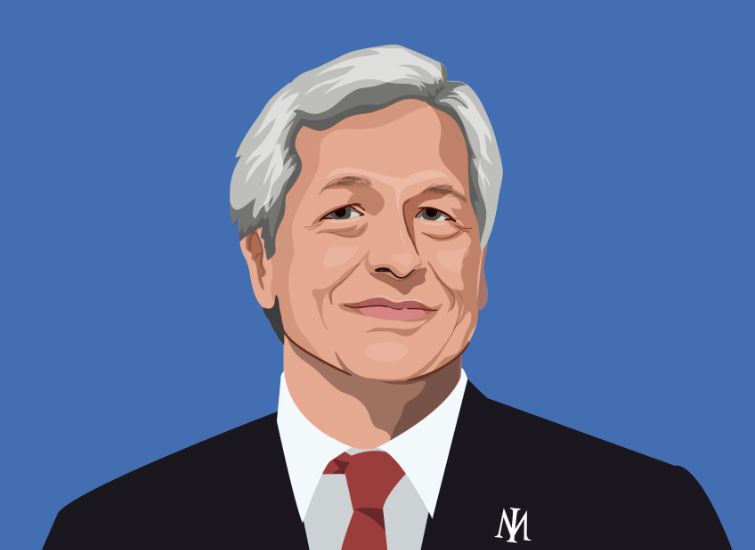
![Source: Jamie Dimon Annual Letter [JP Morgan]](https://images.squarespace-cdn.com/content/v1/568cf1da4bf1182258ed49cc/1523261203539-JFQPTS9EZJ9FKF55843C/jpmvsS%26P.JPG)
![Source: Jamie Dimon Annual Letter [JP Morgan]](https://images.squarespace-cdn.com/content/v1/568cf1da4bf1182258ed49cc/1523261656438-KBO1HK96O6OA9YNX9GSW/tangiblebook.JPG)
![Source: Jamie Dimon Annual Letter [JP Morgan]](https://images.squarespace-cdn.com/content/v1/568cf1da4bf1182258ed49cc/1523262739458-AGVI3XS8EP5OOVN8QID3/stockpricejpm.JPG)
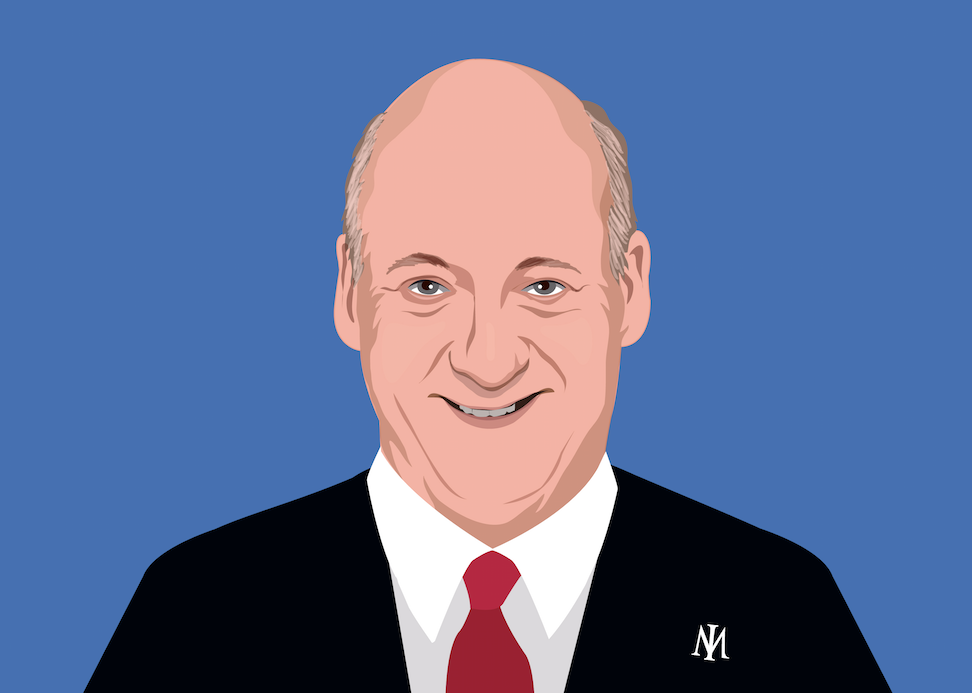





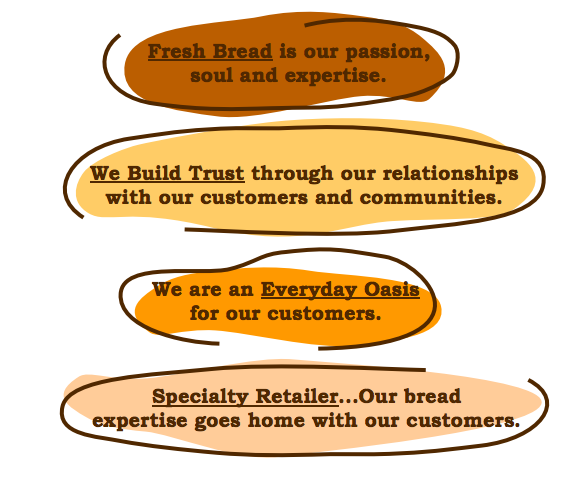
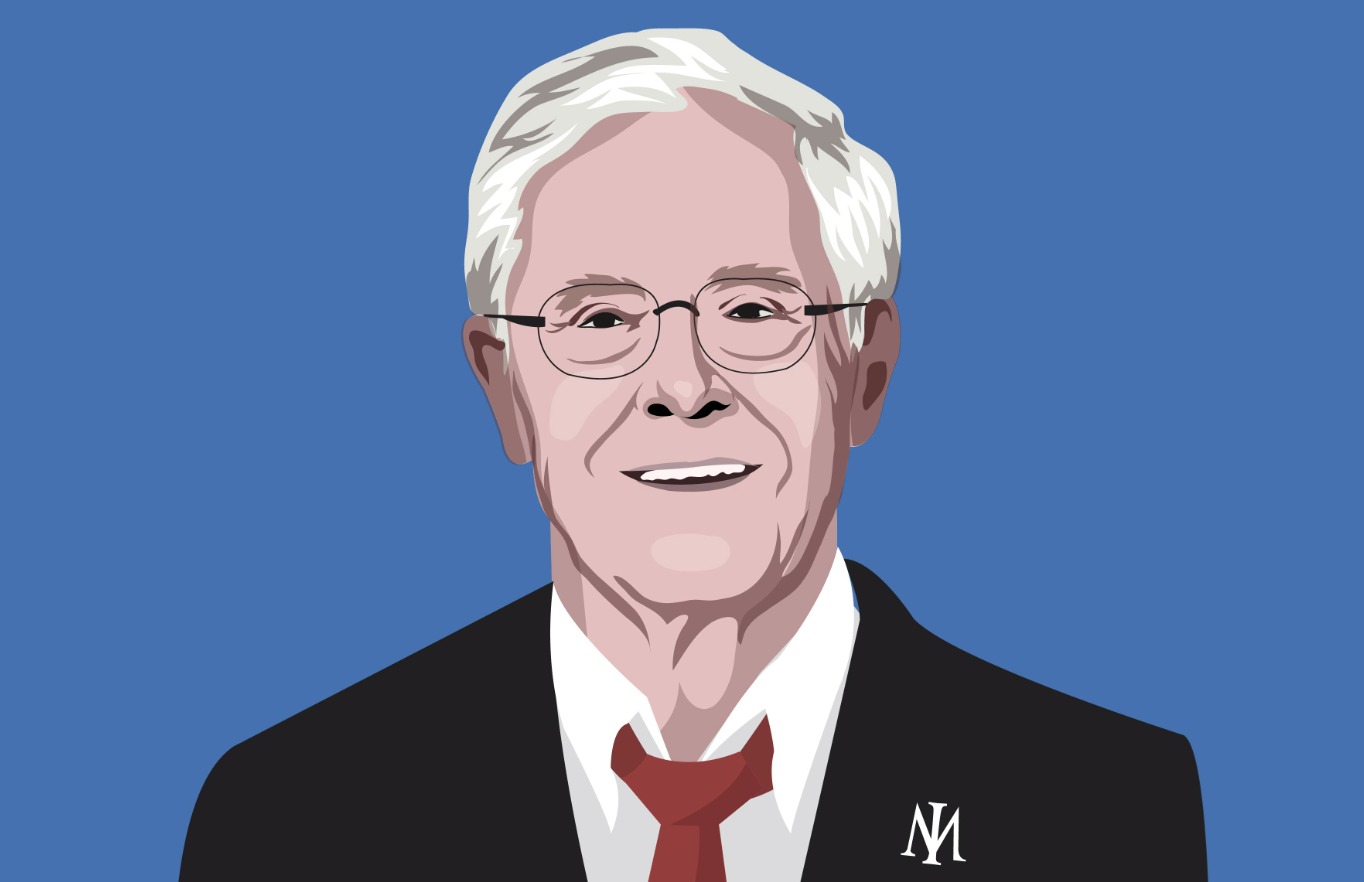
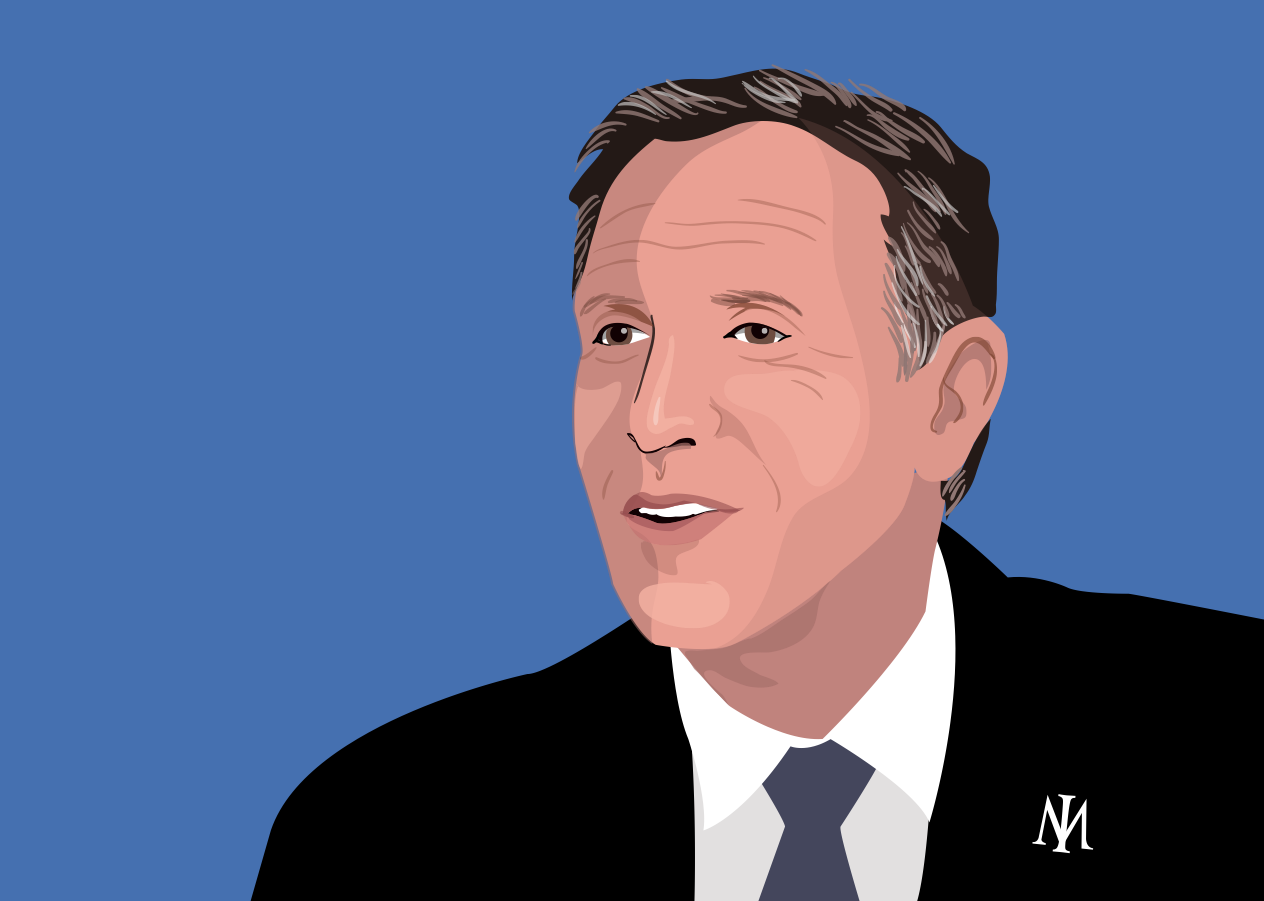
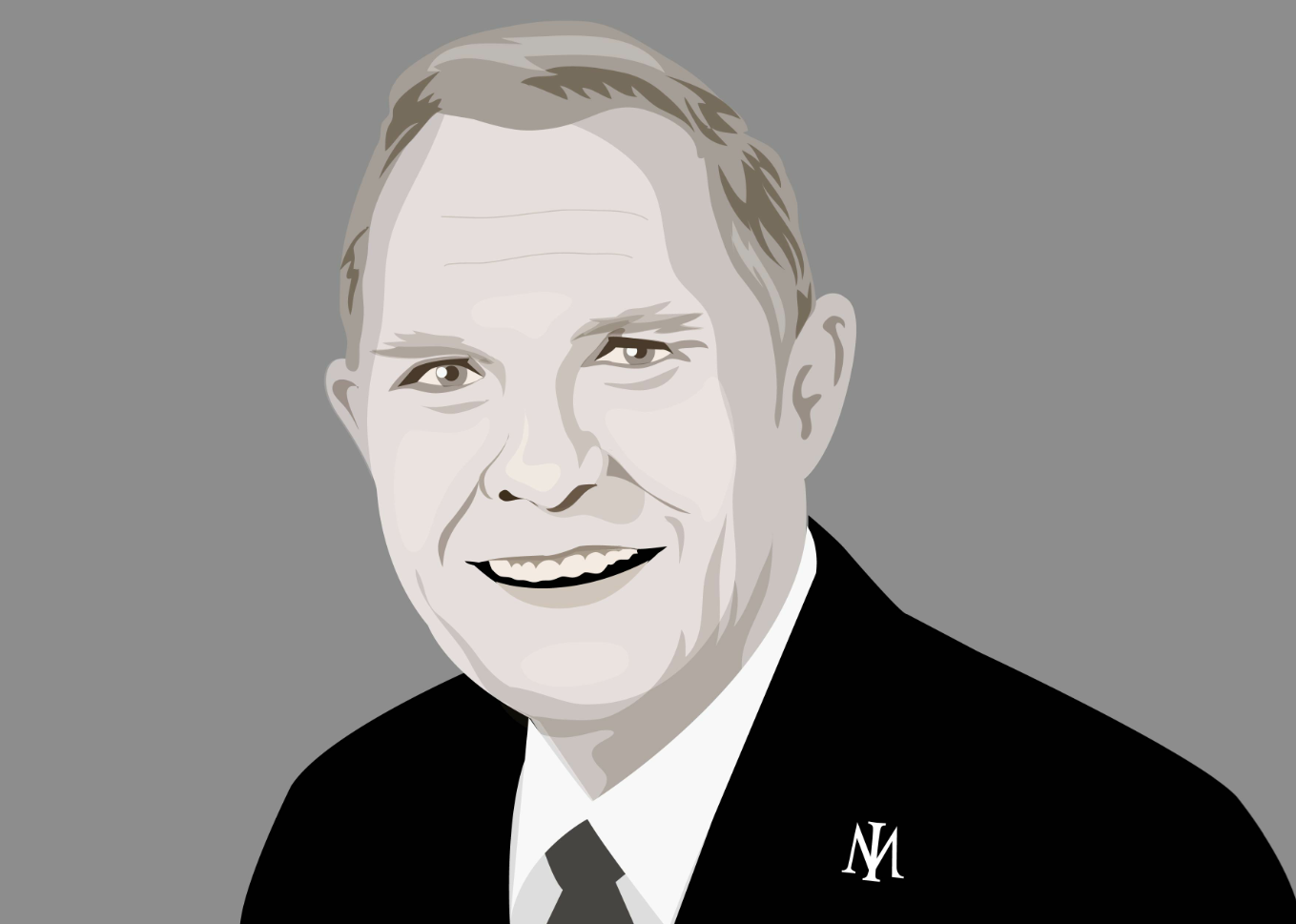
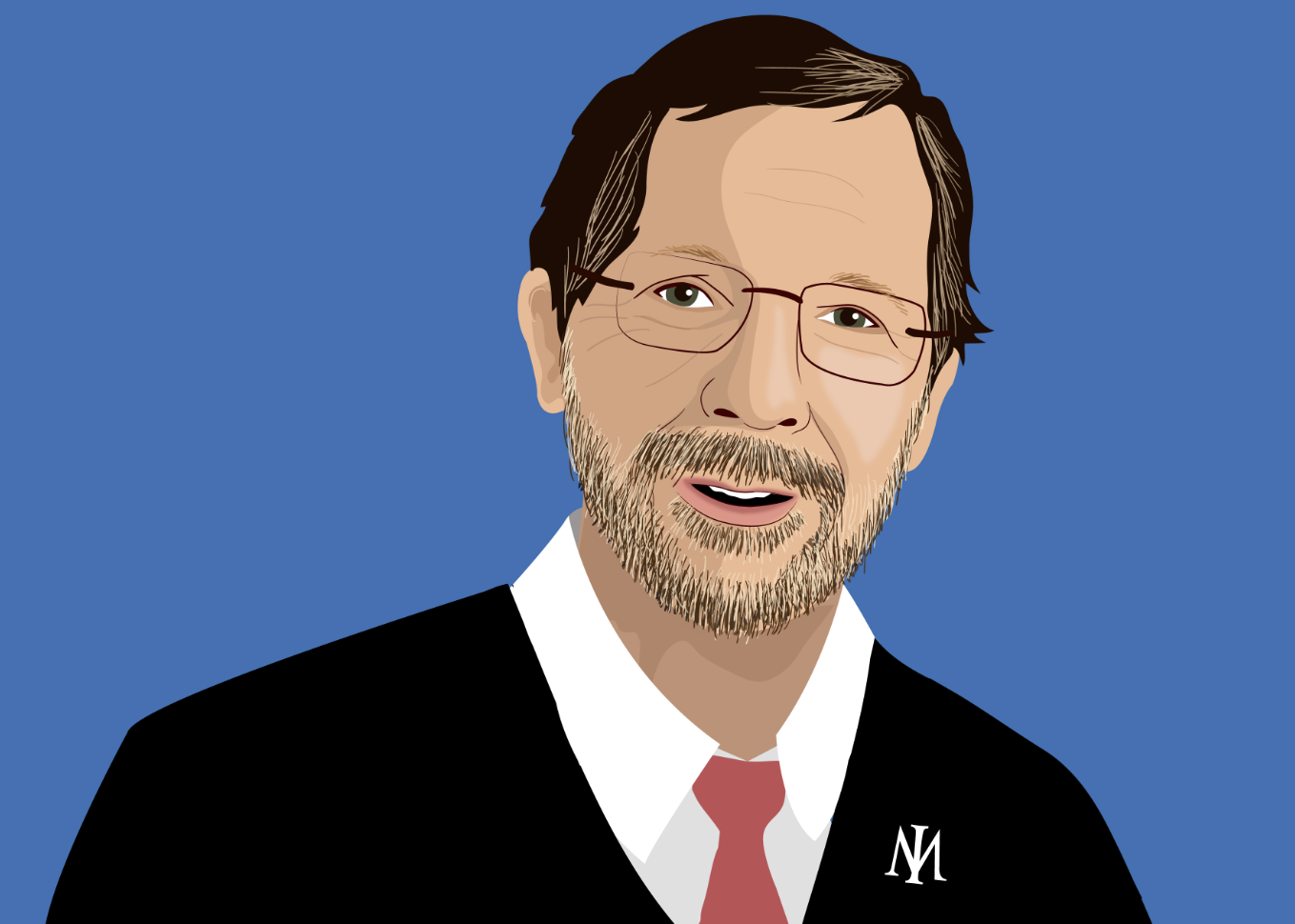
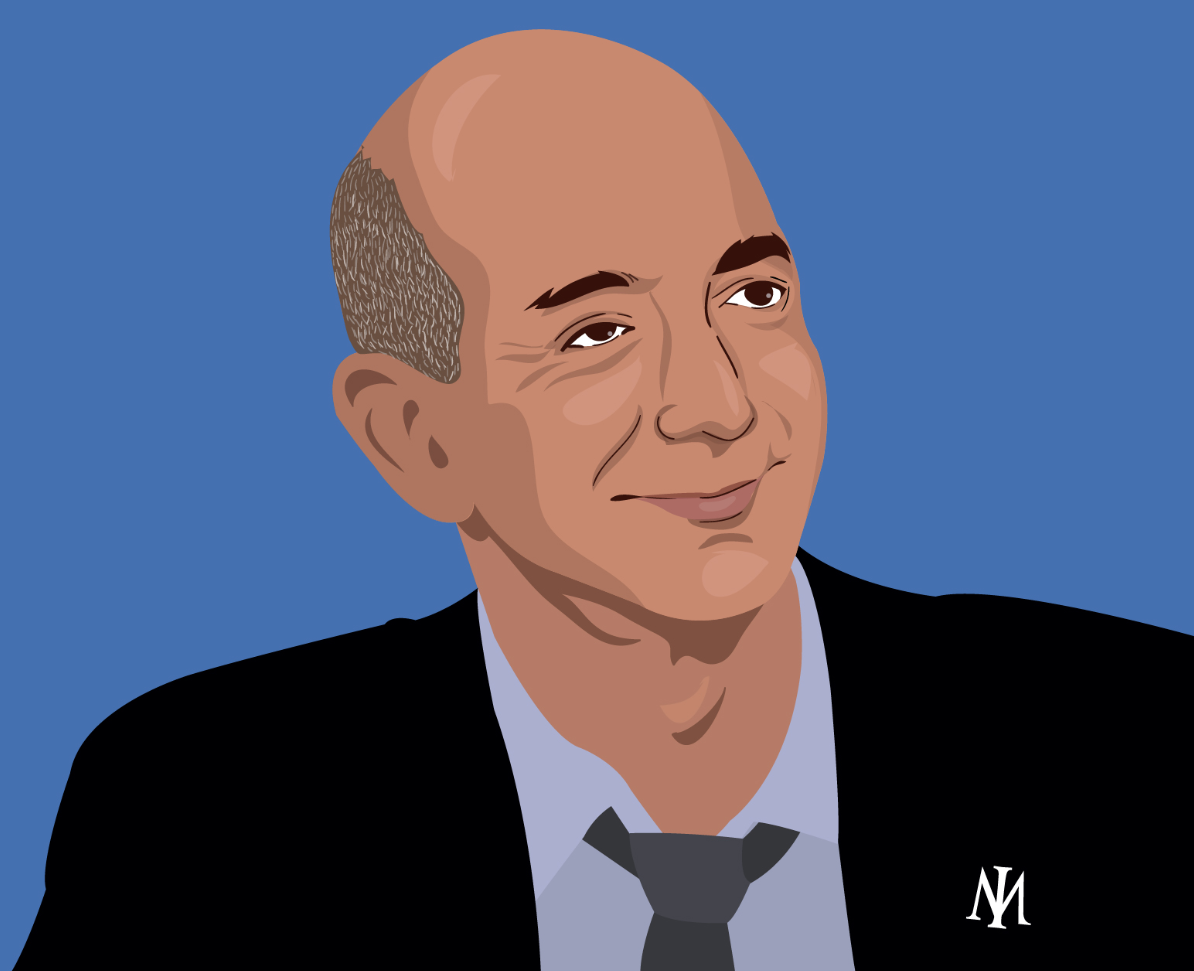
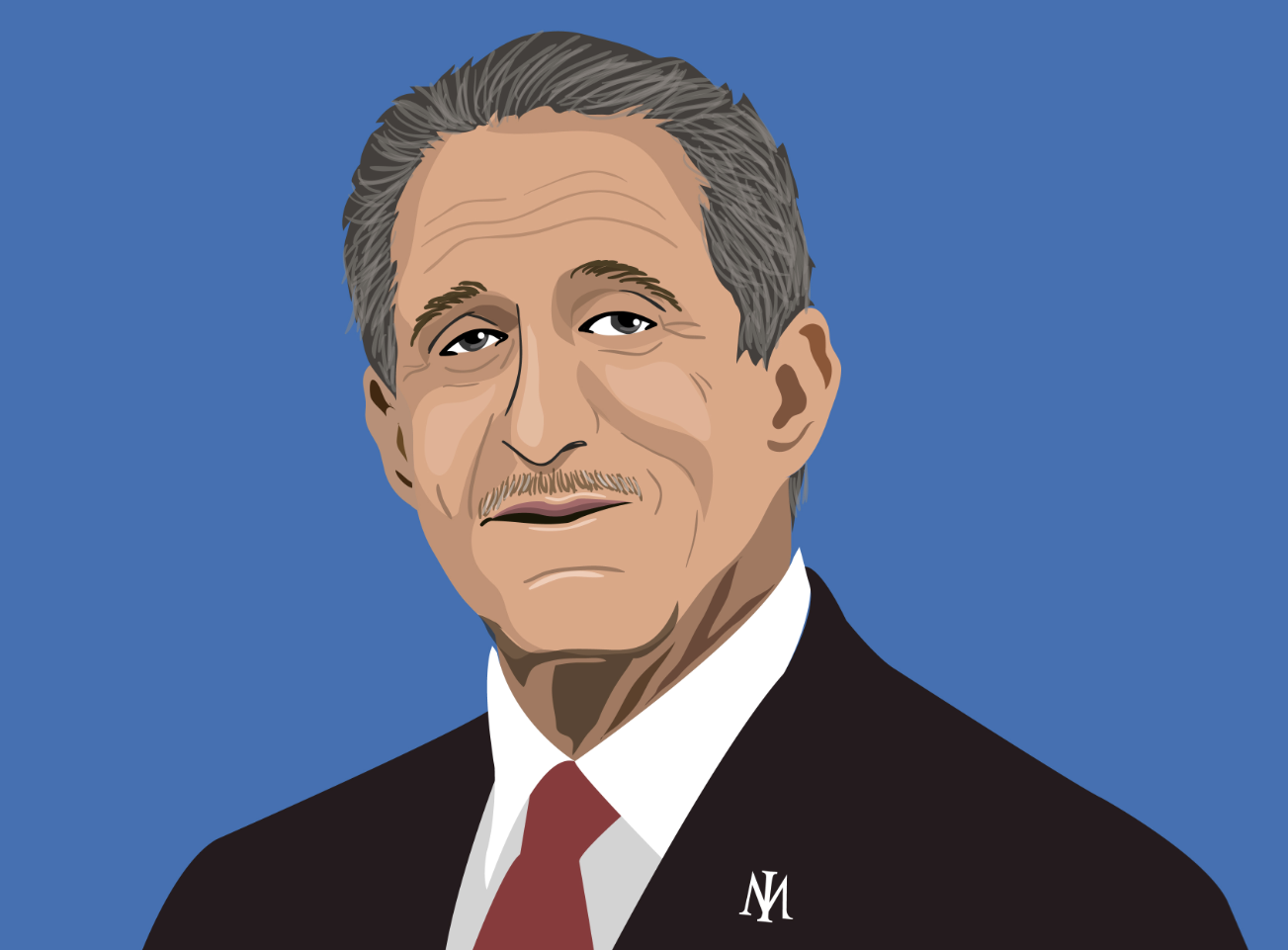
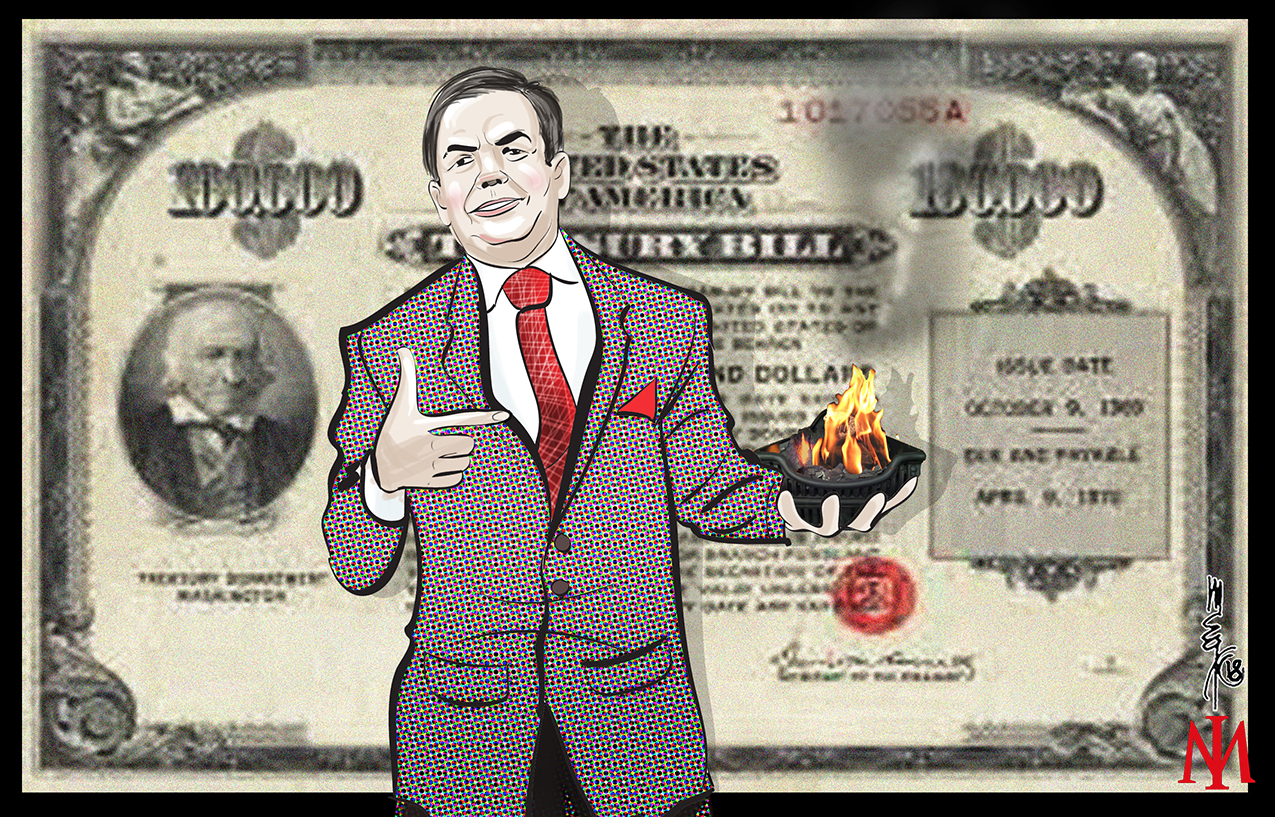
![US10yr Bond Yield Vs S&P500 Earnings Yield [Source Bloomberg]](https://images.squarespace-cdn.com/content/v1/568cf1da4bf1182258ed49cc/1520921041532-6FFC52F6ZMLWKO5TU0FL/bond_v_spx.JPG)
![US10Year Yield less Inflation [Source Bloomberg]](https://images.squarespace-cdn.com/content/v1/568cf1da4bf1182258ed49cc/1520837186222-GGTKCTWUC5ZI1B7XSR6K/cpi_real.JPG)


